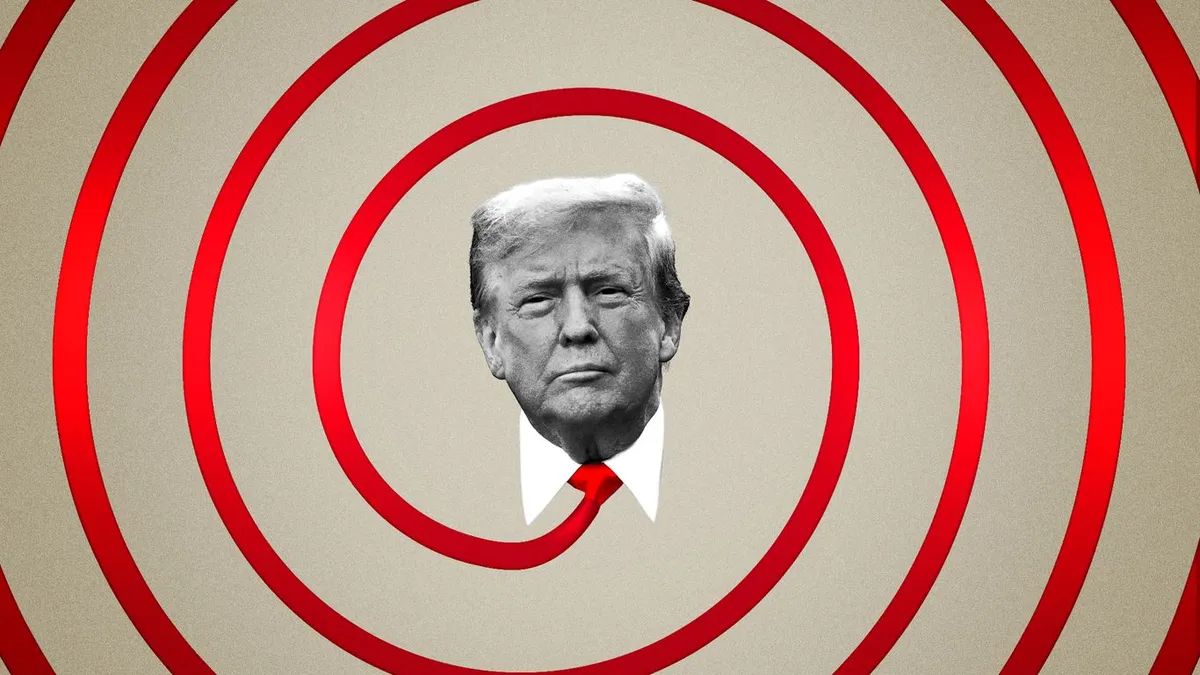
President Donald Trump's attempt to rebrand the controversial One Big, Beautiful Bill Act is failing to conceal a troubling reality: his economic approval ratings are in freefall. As the data reveals a grim picture, it underscores the urgency for Trump to address his sinking popularity among voters concerned about the economy. This situation is particularly precarious as Trump risks mirroring the same vibecession dynamic that plagued President Biden, with alarming structural signals indicating a potential downturn.
Republican strategists are expressing growing concern that rising inflation could have detrimental effects on the party's prospects in the upcoming 2026 midterms. They warn that Trump has a limited window to alter his trajectory on what voters consider their most pressing issue. For a president who historically has relied on his economic credibility as a key asset, the possibility of losing that trust presents a uniquely dangerous challenge.
According to polling averages from G. Elliott Morris, Trump's approval rating regarding inflation and cost of living stands at a dismal -24, nearing Biden’s lowest ratings during the height of the 2022-23 price surge. Overall, Trump's favorability on jobs and the economy remains negative at -13. Data from The Economist/YouGov reveals that 52% of U.S. adults believe the economy is deteriorating, while only 24% think it is improving, and 20% believe it is stable.
Polling data consistently shows that Trump's Big, Beautiful Bill Act, which extends tax cuts from 2017 while reducing funding for Medicaid and other safety net programs, is among the most unpopular legislative measures in recent years. Trump campaign officials have recognized this PR crisis, advising Republicans to refer to the legislation as the Working Families Tax Cut Bill. However, Democrats argue that no amount of rebranding can mask the fact that the poorest 25% of households will financially suffer under this law, while wealthier individuals will benefit, according to the Congressional Budget Office.
The negative voter sentiment aligns with increasingly concerning economic fundamentals. Inflation continues to rise, exacerbated by Trump's ongoing trade war, which some analysts suggest may lead to shortages of essential goods and a challenging holiday season. The labor market is also showing signs of stress, with layoffs on the rise and the number of unemployed individuals now surpassing job openings for the first time since April 2021. The housing market remains unstable, with high interest rates and stagnant supply. Despite hopes that Trump's tariffs would boost manufacturing, economic activity in the sector has contracted for six consecutive months, resulting in job losses.
Despite these challenges, Trump officials assert that the economy remains fundamentally robust, citing strong consumer spending, corporate investment, and a rising stock market as indicators of health. They attribute negative media coverage to skewing public perception. A nonpartisan analysis indicates that the average American could see a federal tax cut of $3,752 in 2026 as a result of the new law, although this is measured against a hypothetical scenario without the legislation, not current tax rates. The White House is also promoting benefits such as the absence of taxes on tips and $1,000 accounts for newborns to illustrate how the legislation supports ordinary households.
While the stock market has risen over 8% since Trump took office, benefiting 62% of Americans who own stocks, this disconnect between market performance and public sentiment is stark. As Trump's approval ratings drop, the administration continues to emphasize the positive aspects of the economy, with White House spokesman Kush Desai highlighting how Trump's trade deals have opened up access to foreign markets worth over $32 trillion, potentially benefiting American exports.
With Trump's economic agenda largely established, he has limited options remaining to influence the economy. His potential avenues include pressuring the Federal Reserve to lower rates or possibly issuing tariff rebate checks to some Americans. As political ad spending is expected to surge before the midterms, the battle for economic perception may rely heavily on messaging and marketing. Trump may ultimately learn a difficult lesson: it's challenging to persuade voters of economic strength when their personal experiences indicate otherwise.